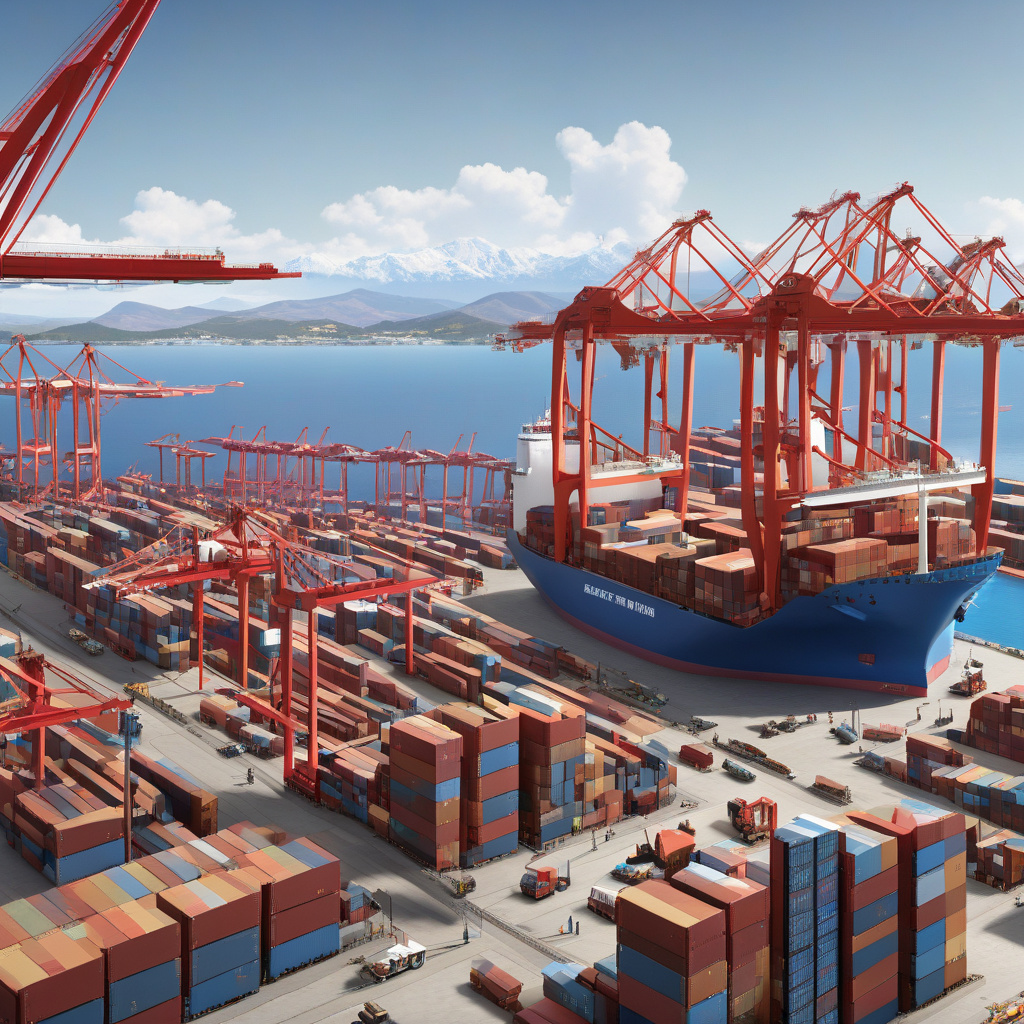Boosting AI Adoption in the Shipping Industry for Enhanced Productivity
The global shipping industry stands at a crucial crossroads, where technological advancements have become not just a luxury but a necessity for sustainable growth and enhanced productivity. In a recent warning by Brian Hack, it has come to light that a mere 28% of the industry is currently harnessing the power of artificial intelligence (AI). This calls for urgent action and a paradigm shift towards embracing AI to navigate the competitive waters of the shipping sector successfully.
AI, with its ability to analyze data, streamline operations, and predict outcomes, has the potential to revolutionize the shipping industry. From optimizing routes to predictive maintenance of vessels, AI can offer a plethora of benefits that translate into cost savings, increased efficiency, and improved decision-making processes. By automating routine tasks and offering valuable insights, AI can empower shipping companies to stay ahead of the curve in an increasingly digital landscape.
One of the key areas where AI can make a significant impact is in predictive maintenance. By leveraging AI algorithms to analyze data from sensors and historical maintenance records, shipping companies can predict potential failures before they occur, thus preventing costly downtime and maintenance issues. This proactive approach not only saves time and money but also enhances the overall reliability of the fleet.
Moreover, AI can play a crucial role in optimizing shipping routes based on real-time data analysis. By considering factors such as weather conditions, fuel prices, and traffic patterns, AI-powered systems can suggest the most efficient routes for vessels, leading to fuel savings and reduced emissions. This not only aligns with the industry’s growing focus on sustainability but also contributes to cost reduction and operational efficiency.
Furthermore, AI can revolutionize the customer experience in the shipping industry. By analyzing customer data and preferences, AI can personalize communication, offer tailored services, and anticipate customer needs effectively. This level of customization not only enhances customer satisfaction but also fosters long-term loyalty and repeat business.
Despite the undeniable benefits of AI adoption in the shipping industry, there are challenges that need to be addressed. These include initial investment costs, data privacy concerns, and the need for upskilling the workforce to leverage AI effectively. However, the long-term advantages far outweigh these challenges, making AI adoption a strategic imperative for shipping companies looking to thrive in a competitive market.
In conclusion, the call to boost AI adoption in the shipping industry is not just a suggestion but a necessity for sustainable growth and enhanced productivity. With only 28% of companies currently utilizing AI, there is a vast opportunity for others to capitalize on this transformative technology and gain a competitive edge. By harnessing the power of AI for predictive maintenance, route optimization, and personalized customer experiences, shipping companies can chart a course towards a more efficient, cost-effective, and customer-centric future.
#ShippingIndustry, #ArtificialIntelligence, #ProductivityGrowth, #AIAdoption, #DigitalTransformation
